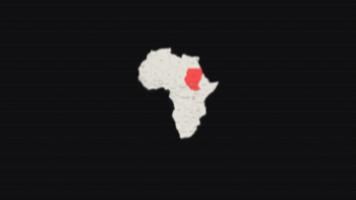A small group of committed antiracist feminist activists changed the global discourse about racism and antiracism.
“We must re-commit to an internationalist politics that is part of black radical tradition and thought.”
In this series, we ask acclaimed authors to answer five questions about their book. This week’s featured author is Sylvanna M. Falcón. Falcón is an Associate Professor of Latin American and Latino/a Studies at the University of California, Santa Cruz. Her book is Power Interrupted: Antiracist and Feminist Activism inside the United Nations.
Roberto Sirvent: How can your book help BAR readers understand the current political and social climate?
Sylvanna Falcón:The current political and social climate is incredibly fraught and raw for the issues discussed in Power Interrupted, which include racism, white supremacy, patriarchy, violence, and xenophobia. What I sincerely hope my book is able to offer BAR readers is that in these difficult times, we must never lose site about the fragility of power. White patriarchal supremacy is built on weak and morally bankrupt infrastructure and therefore, we must continue to undermine and resist this oppressive power knowing that it has been done in the past and it must be done now. I hope my book reminds readers that in doing so — resisting white male supremacy — we are contributing to a timeline of social progress that is not linear. Social progress is a steps forward and steps back process.
“This administration is par excellence of white male supremacy.”
And in that regard, we must understand the current moment in the US as not being isolated from the right-wing authoritarianism emerging in other parts of the world. Though I sometimes view the Trump Administration as exceptional in its vulgarity, cruelty, and corruption, I remind myself this administration is par excellence of white male supremacy and thus, less exceptional. You can see these logics of supremacy discussed in my book when tracing a part of the historical record about the formation of the United Nations (UN).
What do you hope activists and community organizers will take away from reading your book?
I hope they take away some inspiration and understand how much better the world is because they are doing the hard work even if they might not see it in the moment. Activist work is very difficult — remaining vigilant, focused, and compassionate while at the same time staying healthy and having integrity. My book, at its core, is about how a small group of committed antiracist feminist activists made both small and large-scale changes in the global discourse about racism and antiracism. This change in discourse can promote more effective antiracist policies and contribute to a new framework for understanding the shifting nature of racism. In other words, their UN-based human rights activism mattered in demonstrating intersectionality as a framework (though by no means an exclusive one) in which to conceptualize racism.
And at the same time, we must remember that setbacks and challenges are part of the trajectory of this kind of work. If only progress were linear. If only progress always resulted in positive societal changes leading toward full emancipation. But progress is a process that includes both darkness and light, both hope and frustration.
We know readers will learn a lot from your book, but what do you hope readers will un-learn? In other words, is there a particular ideology you’re hoping to dismantle?
I sincerely hope that US readers, in particular, dismantle a belief that somehow we are separated or insulated from US power when outside the US because we are from a marginalized group or are critical of US government actions. Of course this does not apply to all marginal communities in the same way but too often I see US people of color enter non-US spaces as if they are in the United States, meaning that they are not being sufficiently self-reflective about how we can come to represent US power in these spaces, especially through our behavior. This can be very awkward, difficult, and confusing when we do not understand the breadth and depth of US power around the world and do not understand how others can view us as implicated in that power.
Another way to put it is this way: the United States government is deeply invested in an ideology of exceptionalism, and promoting this ideology violently. Therefore, the US can allegedly be the beacon of hope and simultaneously detain and imprison refugees and asylum seekers as if they are criminals. This exceptional discourse is full of contradictions. And so sometimes when we enter non-US activist spaces, we can also talk (usually in English) about our social issues as exceptional and thus, they must be a priority or universal for everyone. We can take up too much space in the room, not realizing we may be silencing others. We have to be vigilant about being self-reflexive and that includes remembering our social position shifts when we travel.
Who are the intellectual heroes that inspire your work?
There really are so many so I will just list a few of them. One is Chandra Mohanty of Syracuse University. She has been inspiring as both a mentor and scholar. Her work always gives me pause for thinking about race, transnationalism, feminism, and justice. Another is Keisha-Khan Perry of Brown University because her program of research centers an unwavering passion for Black women’s liberation in the diaspora of the Americas (from Brazil, to the Caribbean, to the United Stares). And of course there are the activists. In particular I would like to recognize those who have been assassinated, such as Bety Cariño of Mexico, Berta Cáceres of Honduras, and Marielle Franco of Brazil, for understanding the socio-political urgency in which the world must be transformed. Courageous people in general are awe-inspiring to me.
In what way does your book help us imagine new worlds?
I conclude my book by returning to the opening phrase that used to appear on the UN website that stated: “Welcome to the UN: It’s your world.” And I asked why your world instead of our world. If we understand the world as ours, then our entire mindset has to shift away from individuality, towards collectivities and communities, away from extraction and profit towards caring and responsibility or accountability to everyone, including the environment. The UN has never truly lived up to its multilateral potential because of geo-political power. Yet these global spaces represent important convergences as we strive to reach a better world, one in which peace becomes the norm, not militarism and war. In imagining new worlds, we must re-commit to an internationalist politics that is part of black radical tradition and thought. If we don’t understand our emancipation as intertwined, then the project of liberation is incomplete.
Roberto Sirventis Professor of Political and Social Ethics at Hope International University in Fullerton, CA. He also serves as the Outreach and Mentoring Coordinator for the Political Theology Network. He is co-author, with fellow BAR contributor Danny Haiphong, of the book, American Exceptionalism and American Innocence: A People’s History of Fake News—From the Revolutionary War to the War on Terror.
COMMENTS?
Please join the conversation on Black Agenda Report's Facebook page at http://facebook.com/blackagendareport
Or, you can comment by emailing us at comments@blackagendareport.com



















